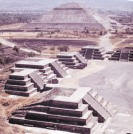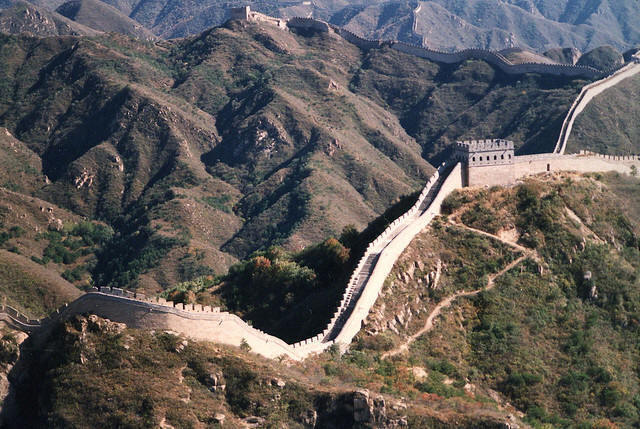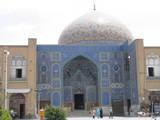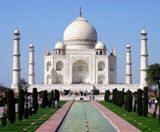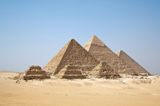Islam and the Political Order
April 24-25,
2005
Washington, D.C.
As the process of globalization forces the great
civilizations inexorably to interact with each other, it
become newly urgent to understand their foundations and
their mutual compatibility. It is now generally recognized
that each civilization is founded in a great religion and
conversely that each great religion generates its own
civilization. Nowhere is this more consciously and devotedly
the case than for Islam.
In contrast, political liberalism begins by removing
religious and other cosmic or integrating visions behind “a
veil of ignorance” as a condition for the development of the
political order. Some even consider the aspirations of the
freedom and autonomy of the human person to be challenged by
the recognition of any transcendent order.
The seeming collision of these two visions—religious and
secular—generates tremors which shake the world. It is most
urgent therefore to examine both in depth and in detail the
proper relation of religion to the political order, both
within the Islamic world and in the broader pattern of
global interchange.
This urgency has deep roots. In the past both thought and
political order have moved especially from the top downward.
For Plato, at the apex were the ideas of either “The Good”
or “the One” from which all else descended as image and
participation. This served both Christianity and Islam in
appreciating and interpreting their revelations and applying
them to political life. In Christianity once this meant that
the Pope not only blessed, but endowed the Emperor with
power and could also retract it. In Buddhism and
Christianity the life of the founder of the faith is
archetypical and this has been true as well for the public
community in Islam.
It is then the greatest moment when the entire horizon
revolves and governments come to be seen to be—in Lincoln’s
words—as “of the people, by the people and for the people,”
when for its source theology adds to scripture and tradition
the life of the people, and when interrelations in terms of
cultures and civilizations become the major determinants of
peace in these newly global times.
The work begins with a prologue by S.H. Nasr entitled
“Diverse Currents of Islamic Political Thought and the
Significance of Islamic Political Philosophy Today” which
brings to the endeavor the sure hand of one of the most
experienced and insightful of Iranian Islamic scholars. His
guidance sets all on a proper course.
In this delicate yet crucial investigation it is best to
begin by listening to those most involved as they begin to
chart out the field as only they can see it. Thus Part I
“The Islamic Context” has three chapters: “Ethical and
Political Challenges for Religions in Building a Healthy
Society” by Ayatollah Mohmoud Mohammadi Araghi; “History of
Politics in the World of Islam” by Reza Davari Ardahani; and
“The Islamic Revolution and International Law” by Medhi
Sanaie.
Part II focuses on the crucial question: “If God is Lord of
All, Is There Room for Man?” The greatest of all challenges
is how the one God who is Lord of all can create not only a
physical world, but free creatures: persons and societies.
This problem is stated in three ways in the three chapters:
“Political Legitimacy and Human Freedom in Islam” by
Ayatollah Amid Zanjani; “The Quran as Negative Theological
Texts: The Evidence of Sara II” by Aryeh Botwinic; and
“Divine Will and Human Needs” by Hossein Nur Mohammad
Sadeghi.
Part III “Implications of the Religious Foundations of the
Person” begins a positive response to this question by
understanding human freedom not as opportunity to rebel
against God, but as the creative capacities of a humankind
made by God to be his vice gerents in ruling the world. This
is investigated in four chapters: “The Person in a Religious
Horizon” by Kenneth L. Schmitz; “Ethics and Politics within
the Context of Religion” by Ghalamreza Aavani; “Western
Democracy from the Viewpoint of Islamic Studies” by S.M.
Mohaghegh Damad; and “Islam and Human Rights” by Ali
Asganyazdi.
Part IV “Distinction, Relation, Separation? The Proper
Interface of religion and the Political Order” comes to the
heart of the issue. How can these vice gerents of God not
only live together in a passive coexistence but work
together in that every gerency which is the political order.
Above, some spoke of the religious and the political order
as being simply separate, others have seen religion as
inseparable from politics. If they are inseparable but
distinct how indeed can they relate? What is the proper
interface between religion and the political order?
Two leading political theoreticians grapple with this issue
in the following papers: “The Idea of Political Pluralism,
“Religious Violence or Religious Pluralism,” and “Religion
and Political Authority” by Willam A. Galston, and
“Religion, Ethics and Liberal Democracy: A Possible
Symbiosis” and “Religious Democracy: Some Proposals” by Fred
R. Dallmayr.
The Epilogue looks to the task ahead. If we are really
entering upon a new post modern age then the past pattern of
political theory and practice can be expected to be
inadequate. Yet the proper road ahead is not yet visible. In
this circumstance we can conclude the works by identifying
some of the crucial elements that can enable us to move
ahead in faith, namely, that religions and cultures were
originally one, that the thrust toward objective or
scientific clarity may have excessively separate them, and
that the new awareness of human subjectivity may be opening
new and deeper ways of relating the religions and the
political order both between themselves and across cultures
and civilizations for global times.
